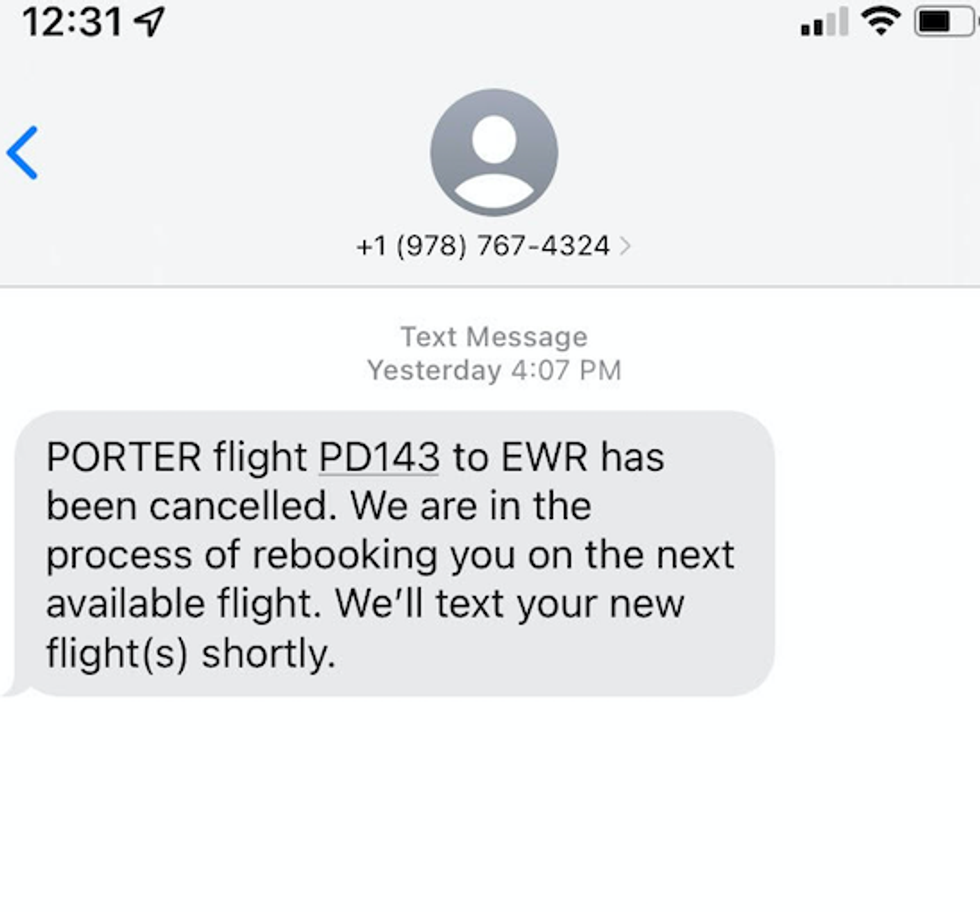Travel Delayed? Here's What Passengers Are Entitled To For Flight Cancellations In Canada
Last year was rocky for Canadian airlines, with hundreds of flight delays and cancelled flights from major carriers like Air Canada, WestJet and Sunwing.
With 2023 not proving to be much better, travellers may be wondering what they're entitled to if their flight is delayed or cancelled.
If you're in this boat, the Canadian Transportation Agency has useful information about passenger rights in Canada.
According to the CTA, when an airline delays or cancels a flight, what passengers may be entitled to depends on the level of control that the airline has over the reason for the delay or cancellation.
There are three different kinds of situations, and each warrants a different outcome in terms of compensation. The delay or cancellation could be within the airline's control, within the airline's control but required for safety, or outside the airline's control.
What passengers can get for delays and cancellations
According to the CTA, issues that are considered to be within an airline's control include staffing issues, decisions to consolidate flights due to low demand, and disruptions due to scheduled maintenance.
If your flight is cancelled or delayed due to one of these reasons, the CTA says that, when applicable, airlines must offer you alternative travel arrangements or provide you with a refund, as well as pay you compensation for the inconvenience.
In all situations, travel arrangements are required to be provided free of charge if your flight is cancelled and for flight delays of three hours or more, the CTA says.
They must also provide passengers with assistance in certain circumstances, like when travellers were informed of the delay or cancellation less than 12 hours before their original departure time and they've waited two hours or more since the original departure.
In this case, the airline must provide a "reasonable amount of food and drink" at no charge, as well as access to means of communication (such as Wi-Fi or a prepaid calling card) and overnight accommodation that's free of charge, including transportation, if the disruption means a passenger will now have to wait overnight for their flight.
When the issue, however, is within the airline's control but required for safety, it doesn't have to provide compensation. It does, however, have to meet the other obligations that are required if the disruption wasn't for safety.
For situations outside the airline's control, like extreme weather or security incidents, the airline doesn't have to provide you with compensation, or even assistance like food or overnight accommodations. It does, however, have to make alternate travel arrangements for passengers or issue a refund, in some cases.
You can find more specific information about what each airline offers online, like for WestJet flight cancellations and delays and those from Air Canada.
How much compensation do Canadian airlines give?
Airlines have to compensate passengers if the notice for the delay or cancellation comes 14 days or less before their departure time.
According to the CTA, large airlines must pay:
- $400 if the passenger arrives 3 or more hours late
- $700 if the passenger arrives 6 or more hours late
- $1,000 if the passenger arrives 9 or more hours late
Small airlines must pay lower amounts, which are:
- $125 if the passenger arrives 3 or more hours late
- $250 if the passenger arrives 6 or more hours late
- $500 if the passenger arrives 9 or more hours late
If you take a ticket refund instead of other travel arrangements, the airline still has to compensate you for the inconvenience. Large airlines must pay $400 for this, while small airlines have to pay $125.
If you experience a problem while flying, you'll need to first contact the airline in writing about the issue. If you're unhappy with the reply, or the airline didn't reply at all, you can then contact the CTA and ask them to review your case.
It's worth noting though that the CTA is currently dealing with a backlog of traveller complaints — Minister of Transport Omar Alghabra said on March 14 that the number of complaints was most recently at 42,000.
The minister announced $75.9 million in additional funding over three years, starting in this year, to help ensure that the CTA has the resources to address the complaints.
 Text message to Nakul Kapoor. Nakul Kapoor.
Text message to Nakul Kapoor. Nakul Kapoor.